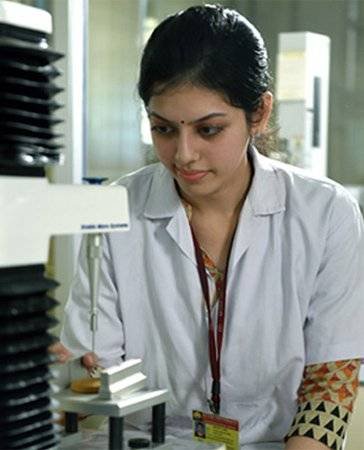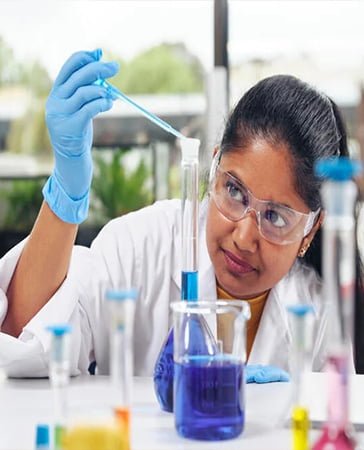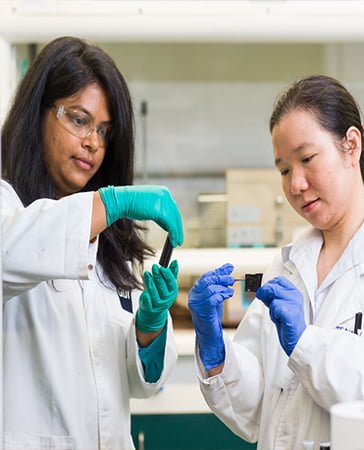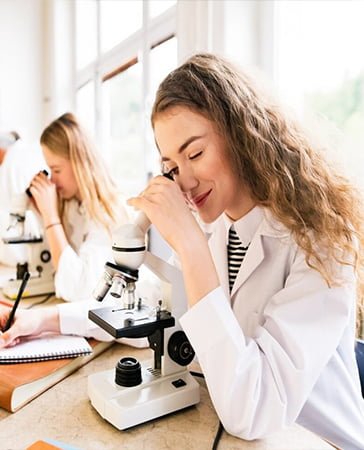About B.Tech in Bio-Chemistry
B.Tech in Bio-Chemistry is an undergraduate engineering program that combines principles from both biology and chemistry to focus on the application of chemical concepts to living organisms. This program integrates engineering techniques with biochemistry to explore and develop solutions for various biological and medical challenges.
Eligibility Criteria of B.Tech in Bio-Chemistry
The typical eligibility criteria for B.Tech in Bio-Chemistry include:
Educational Qualification: Candidates should have completed their 10+2 education with Physics, Chemistry, and Mathematics or Biology as core subjects from a recognized board.
Minimum Marks: Candidates are generally required to have a minimum aggregate score of 50% or as per the specific requirements of the institute.
Why Study of B.Tech in Bio-Chemistry
Interdisciplinary Approach: B.Tech in Bio-Chemistry provides an interdisciplinary approach, combining principles of chemistry and biology to understand and solve real-world problems.
Biotechnological Applications: The program equips students with the knowledge and skills to work in areas such as pharmaceuticals, healthcare, and biotechnology.
Research Opportunities: Graduates can engage in research and development, contributing to advancements in fields like drug discovery, molecular biology, and genetic engineering.
Syllabus of B.Tech in Bio-Chemistry
The syllabus for B.Tech in Bio-Chemistry may include the following subjects:
B.Tech in Bio-Chemistry First Year: Syllabus
- Mathematics I
- Physics I
- Chemistry I
- Engineering Mechanics
- Computer Programming
- Communication Skills
B.Tech in Bio-Chemistry Second Year Syllabus
- Mathematics II
- Physics II
- Chemistry II
- Thermodynamics
- Basic Electrical Engineering
- Organic Chemistry
- Biochemistry Fundamentals
- Cell Biology
B.Tech in Bio-Chemistry Third Year Syllabus
- Analytical Biochemistry
- Molecular Biology
- Enzymology
- Genetic Engineering
- Biochemical Engineering
- Instrumentation and Measurement Techniques
- Industrial Training
B.Tech in Bio-Chemistry Fourth Year Syllabus
- Bioinformatics
- Immunology
- Bioprocess Engineering
- Biophysics
- Project Work
- Electives (e.g., Pharmacology, Nanotechnology in Biochemistry, Environmental Biotechnology)
Electives
- Pharmacology
- Clinical Biochemistry
- Computational Biochemistry
- Industrial Microbiology
- Environmental Biotechnology
- Food and Nutritional Biochemistry
Laboratory Work:
- Practical sessions related to each course
- Project work in the final year
Entrance Exams:
Entrance exams for B.Tech programs may vary by institution. Common entrance exams for engineering undergraduate programs include:
- Joint Entrance Examination (JEE) Main
- BITSAT (Birla Institute of Technology and Science Admission Test)
- State-level engineering entrance exams
- University-specific entrance exams
Admission Process of B.Tech in Bio-Chemistry
The admission process generally involves the following steps:
Eligibility Criteria:
Candidates must have completed their 10+2 or equivalent examination with Physics, Chemistry, and Mathematics as compulsory subjects.
Specific eligibility criteria may vary by university, and some may require a minimum percentage in the qualifying examination.
Entrance Exams:
Many engineering institutes and universities conduct entrance exams for admission to their B.Tech programs.
Common engineering entrance exams in India include JEE Main, JEE Advanced, state-level engineering entrance exams, and institute-specific exams.
Application Process:
Candidates need to fill out the application forms for the respective universities or engineering colleges where they wish to apply.
Application forms are generally available online on the official websites of the institutions.
Entrance Exam Results:
Once the entrance exams are conducted, results are published, and candidates can check their scores.
Shortlisted candidates are usually called for further rounds of the admission process.
Counseling/Interview:
Some universities conduct counseling sessions or interviews as part of the admission process.
During counseling, candidates may have the opportunity to choose their preferred specialization, such as Biochemistry.
Merit List:
Merit lists are prepared based on entrance exam scores, academic performance, and other relevant criteria.
Seat Allotment:
Based on the merit list and available seats, candidates are allotted seats in the B.Tech program.
Document Verification:
Shortlisted candidates are required to submit documents for verification, including mark sheets, certificates, and other relevant documents.
Fee Payment:
Once the documents are verified, candidates need to pay the admission fees to confirm their seat in the program.
Commencement of Classes:
Admitted students join the program at the beginning of the academic session.
It’s important to note that the specific details of the admission process can vary from one university to another, and candidates should refer to the official websites of the universities they are interested in for the most accurate and up-to-date information. Additionally, some universities may have their own entrance exams or may consider national-level exams for admission.
Career Options of B.Tech in Bio-Chemistry
Upon completing B.Tech in Bio-Chemistry, graduates can pursue various career paths, including:
Biotechnologist: Applying biochemistry principles to develop new products and technologies in the fields of medicine, agriculture, and industry.
Pharmaceutical Researcher: Contributing to the development of new drugs and therapies through research and experimentation.
Clinical Biochemist: Conducting tests and analyzing biological samples in clinical laboratories to diagnose and monitor diseases.
Bioprocess Engineer: Designing and optimizing processes for the large-scale production of biological products.
Job Profile After Completed B.Tech in Bio-Chemistry
Job profiles for B.Tech in Bio-Chemistry graduates include:
Biotechnologist: Conducting research and experiments to develop new biotechnological products and processes.
Pharmaceutical Research Scientist: Engaging in drug discovery and development, conducting experiments to test the efficacy and safety of new drugs.
Clinical Biochemist: Analyzing biological samples in clinical laboratories to diagnose diseases and monitor patients’ health.
Bioprocess Engineer: Designing and optimizing processes for the large-scale production of biological products.













Ann R. –
Very nice product
Everything is perfect. I would recommend!